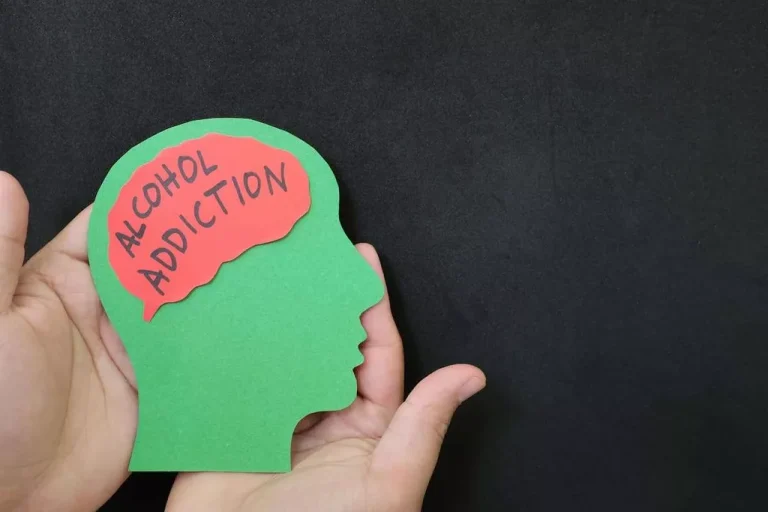
While the therapist helps to break down different thoughts and feelings in therapy sessions, each session likely involves getting some type of homework intended to apply different learned coping skills in everyday life. According to behavioral theory, certain behaviors that might affect your life negatively develop from things you learned in your past. In behavioral therapy, instead of focusing on unconscious reasons for your behaviors, your therapist will help you identify ways to change behavioral reactions and patterns that cause distress. Next, strategies are implemented to help you develop healthier thoughts and behavior patterns. Evidence-based therapy involves interventions that are scientifically proven to be effective for particular issues. In this approach, a strong partnership based on trust and collaboration is formed between you and your therapist.
Research on CBT
By learning how to manage the way you think, you can change the way you feel and behave. Catastrophic thinking, or catastrophizing, is a common cognitive distortion where you automatically believe the worst possible outcome will happen, no matter how unlikely it is. Animated video explaining https://ecosoberhouse.com/ self-referral to talking therapies services for stress, anxiety or depression. Unlike some other talking treatments, CBT deals with your current problems, rather than focusing on issues from your past. There is hardly any scientific research on the possible side effects of psychotherapy.



Cognitive therapy
Likewise, people who overestimate the other side’s hatred and violence grow more willing to hate and harm, as well. The Americans we surveyed believed that conversations like the one between Ben and Emily would be a waste of time or even counterproductive. One wrote that, when it comes to politics, “respectful disagreement is dead.” Ben and Emily were similarly pessimistic — and thus shocked by how much they enjoyed one another and learned from their time together.
© 2024 Harvard Health Publishing® of The President and Fellows of Harvard College
This can be particularly challenging when confronting and changing deeply ingrained negative thought patterns. Research indicates that mindfulness-based approaches integrated with CBT cognitive behavioral therapy can significantly lower the likelihood of depression relapse. Incorporating mindfulness and relaxation techniques helps build resilience against future episodes of mental health issues.
You Must Be Willing to Change
Intrusive thoughts, which can hinder daily functioning, are common, as evidenced by their mention by therapists. Many people experience them, suggesting these thoughts might arise from inherent brain patterns rather than facts. CBT aims to help people become aware of when they make negative interpretations and of behavioral patterns that reinforce distorted thinking.
- Mental health professionals often encourage patients to integrate these practices into their daily routine to enhance their overall well-being.
- Have you felt like obsessive-compulsive disorder treatments don’t work for you?
- A cognitive behavioral therapist will often assign homework to help you practice the skills you learn in therapy, such as replacing self-criticizing thoughts or journaling.
- The cognitive behavioral therapy (CBT) triangle, commonly called the ‘cognitive triangle,’ provides a structured framework to understand the interplay between thoughts, feelings, and behaviors.
- But it can give you the power to cope with your situation in a healthy way and to feel better about yourself and your life.
- The conceptualization based on the CBT model is built from session to session and is shared with the patient at an appropriate time later in therapy.



This suggests that knowledge of the cognitive explanation can improve the quality of people’s lives. It was also found that the therapy was more successful than drug therapy and had a lower relapse rate, supporting the proposition that depression has a cognitive basis. Albert Ellis (1957, 1962) proposes that each of us holds a unique set of assumptions about ourselves and our world that guide us through life and determine our reactions to the various situations we encounter. For instance, becoming an overly protective parent can be a behavior stemming from certain thoughts and feelings.
- Receive prompt and attentive care, with evidence-based treatments designed to help you achieve your goals efficiently.
- Identifying negative thoughts is crucial in understanding and addressing maladaptive behaviors in CBT.
- With CBT, the ultimate goal is to focus on the relationship between thoughts, feelings, and behaviors.
- This collaborative effort ensures that the techniques are tailored to the individual’s needs, making CBT a highly personalized form of therapy.
At your first session, your therapist will typically gather information about you and ask what concerns you’d like to work on. The therapist will likely ask you about your current and past physical and emotional health to gain a deeper understanding of your situation. Your therapist may discuss whether you might benefit from other treatment as well, such as medications.



Cognitive therapy helps people develop alternative ways of thinking and behaving to reduce their psychological distress. Cognitive behavioral therapy (CBT) is one of the most common and best studied forms of psychotherapy. It is a combination of two therapeutic approaches, known as cognitive therapy and behavioral therapy. Other kinds of talk therapy to consider if CBT doesn’t suit a patient include interpersonal therapy, acceptance and commitment therapy, brief therapy, gestalt therapy, among others. Outside of talk therapy, therapists might recommend art therapy, dance therapy, hypnotherapy, or eye movement desensitization and reprocessing. Only licensed mental health professionals like psychologists, social workers, and professional counselors can provide CBT as a treatment for a mental health disorder.
Different versions are contributed by the World Health Organization (WHO), The International Society for Traumatic Stress Studies (ISTSS), and individual clinicians and researchers. It is considered a foundation for the other skills taught in DBT, because it helps individuals accept and tolerate the powerful emotions they may feel when challenging their habits or exposing themselves to upsetting situations. At the Bay Area CBT Center, we accept PPO insurance plans that allow you to use out-of-network providers. This means if your insurance plan is a PPO and it includes mental health benefits, you could get back some or all of the money you pay for our services, depending on what your insurance company allows.